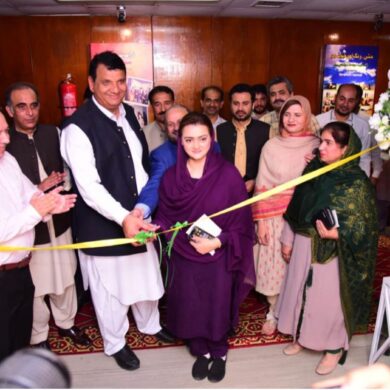The Supreme Court was informed on Friday that a fact-finding committee has been formed to implement the court’s 2019 judgment related to the Faizabad sit-in suo-motu case.
Attorney-General for Pakistan Mansoor Usman Awan submitted the government’s implementation report, indicating the formation of the committee tasked with identifying those responsible for the sit-in, in accordance with the Supreme Court’s verdict of February 6, 2019.
During the last hearing on September 28, a three-member bench led by Chief Justice of Pakistan (CJP) Qazi Faez Isa expressed dissatisfaction over the delayed implementation. The court directed all parties to submit their written responses by October 27.
Earlier, on October 26, the Election Commission of Pakistan (ECP) submitted its implementation report to the Supreme Court, stating that the TLP was not involved in any anti-state or terrorist activities. Consequently, the case was withdrawn.
According to the submitted report, the fact-finding committee comprised of the additional secretary of interior, additional secretary of defense, and the director of Inter-Services Intelligence (ISI).
The committee’s Terms of Reference (TORs) were also outlined, specifying that it would collect evidence related to the Faizabad sit-in, review documents, record witness statements, assess relevant laws and policies, determine the roles of involved parties, and present a report with recommendations. The committee will scrutinize the actions of those who ordered and managed the sit-in and submit its findings to the Defense Ministry by December 1. If additional time is required, the committee will seek an extension from the Defense Ministry.
This legal saga originated on April 15, 2019, when the federal government, along with various entities including the Defense Ministry, Intelligence Bureau, PTI government, AML chief Sheikh Rashid Ahmed, MQM-P, and Pemra, filed review pleas challenging the Supreme Court’s judgment delivered by Chief Justice Qazi Faez Isa regarding the Faizabad sit-in case.
The Supreme Court’s 2019 verdict emphasized the right of citizens and political parties to peaceful assembly and protest, provided it complies with the law and does not infringe on the fundamental rights of others.
The court had taken suo motu notice of the three-week-long Faizabad sit-in in November 2017, which was staged against a change in the finality-of-Prophethood oath, an alteration the government deemed a clerical error when it passed the Elections Act 2017. The sit-in concluded after an agreement was reached between the protesters and the government.



